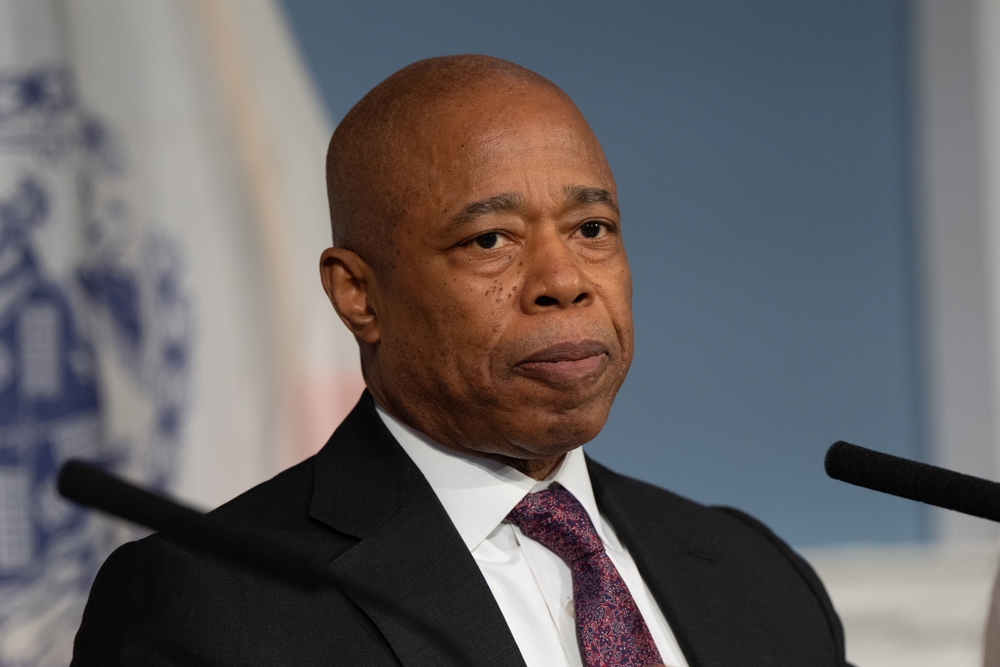New York City Mayor Eric Adams was indicted on bribery and fraud charges Sept. 27 amid a federal investigation into his administration, marking the first time a sitting mayor in the city’s history has faced criminal charges.
Prosecutors allege Adams accepted illegal campaign donations from the Turkish government during his 2021 mayoral run and attempted to conceal these foreign contributions.
The case highlights ongoing concerns about campaign finance laws and political integrity in the United States. Federal regulations govern how political campaigns can raise and spend funds, aiming to ensure transparency and accountability. However, violations are not uncommon.
Campaign finance laws regulate the flow of money in politics, limiting contributions from individuals and organizations. These rules dictate how campaign funds can be used, requiring candidates to disclose expenditures. Allowable expenses include advertising, travel and costs directly related to fundraising efforts. Personal expenses, such as mortgage payments or shopping, are prohibited.
Adams isn’t alone in facing such allegations. Former U.S. Rep. George Santos pleaded guilty to multiple counts of campaign finance violations in August 2024. Santos misused campaign funds for personal expenses, including luxury goods and gambling. His case exemplifies how campaign finance violations can reveal deeper corruption issues within political systems.
Another high-profile case involved former Rep. Duncan Hunter Jr., who was sentenced to 11 months in prison for using campaign donations on personal expenses, including family vacations and extramarital affairs. These cases illustrate the potential for campaign finance violations to uncover significant ethical breaches among politicians.
Campaign finance violations often serve as a gateway to larger scandals, revealing patterns of misconduct that erode public trust in government. Recent surveys indicate that only one-fifth of Americans express confidence in their leaders. This decline in trust can be attributed, in part, to the perception that politicians misuse campaign funds.
The U.S. political climate is increasingly polarized, with voters often remaining loyal to their party regardless of scandals. Research suggests many voters are motivated more by their disdain for the opposing party than by support for their own candidates. This dynamic complicates the impact of campaign finance violations on electoral outcomes, as partisans may overlook or rationalize unethical behavior from their preferred candidates.
As the 2024 election cycle progresses, the potential for more campaign finance scandals looms large. With record amounts of money flowing into political campaigns, scrutiny of fundraising and spending practices will intensify. Voters and media will be watching closely, as any missteps could lead to significant political fallout.
The indictment of Mayor Adams serves as a stark reminder of the importance of campaign finance laws in maintaining the integrity of the political process. As the nation navigates this complex landscape, it is crucial for voters to remain informed and engaged, holding their elected officials accountable for their actions.
Legal experts say the charges against Adams could have far-reaching implications for future elections and campaign finance reform efforts. “This case may serve as a catalyst for stricter enforcement and potentially new legislation,” said Jane Doe, a political science professor at Columbia University.
Adams, who has maintained his innocence, faces up to 20 years in prison if convicted on all charges. His attorney, John Smith, stated, “We are confident that once all the facts come to light, Mayor Adams will be fully exonerated.”
The investigation into Adams’ campaign finances began in early 2023 after whistleblowers within his administration raised concerns about potential irregularities. Federal agents raided City Hall and Adams’ campaign offices in June 2024, seizing documents and electronic devices.
New York Gov. Sarah Johnson expressed shock at the allegations, stating, “If true, these charges represent a serious breach of public trust. We must allow the legal process to unfold and refrain from rushing to judgment.”
The indictment has sent shockwaves through New York’s political establishment and raised questions about the future of city leadership. Under the city charter, if Adams were to step down or be removed from office, the public advocate would assume the role of mayor until a special election could be held.
As the case moves forward, it is likely to reignite debates about the influence of money in politics and the effectiveness of current campaign finance regulations. Reform advocates argue that stricter laws and enhanced enforcement mechanisms are needed to prevent future violations and restore public faith in the electoral process.



